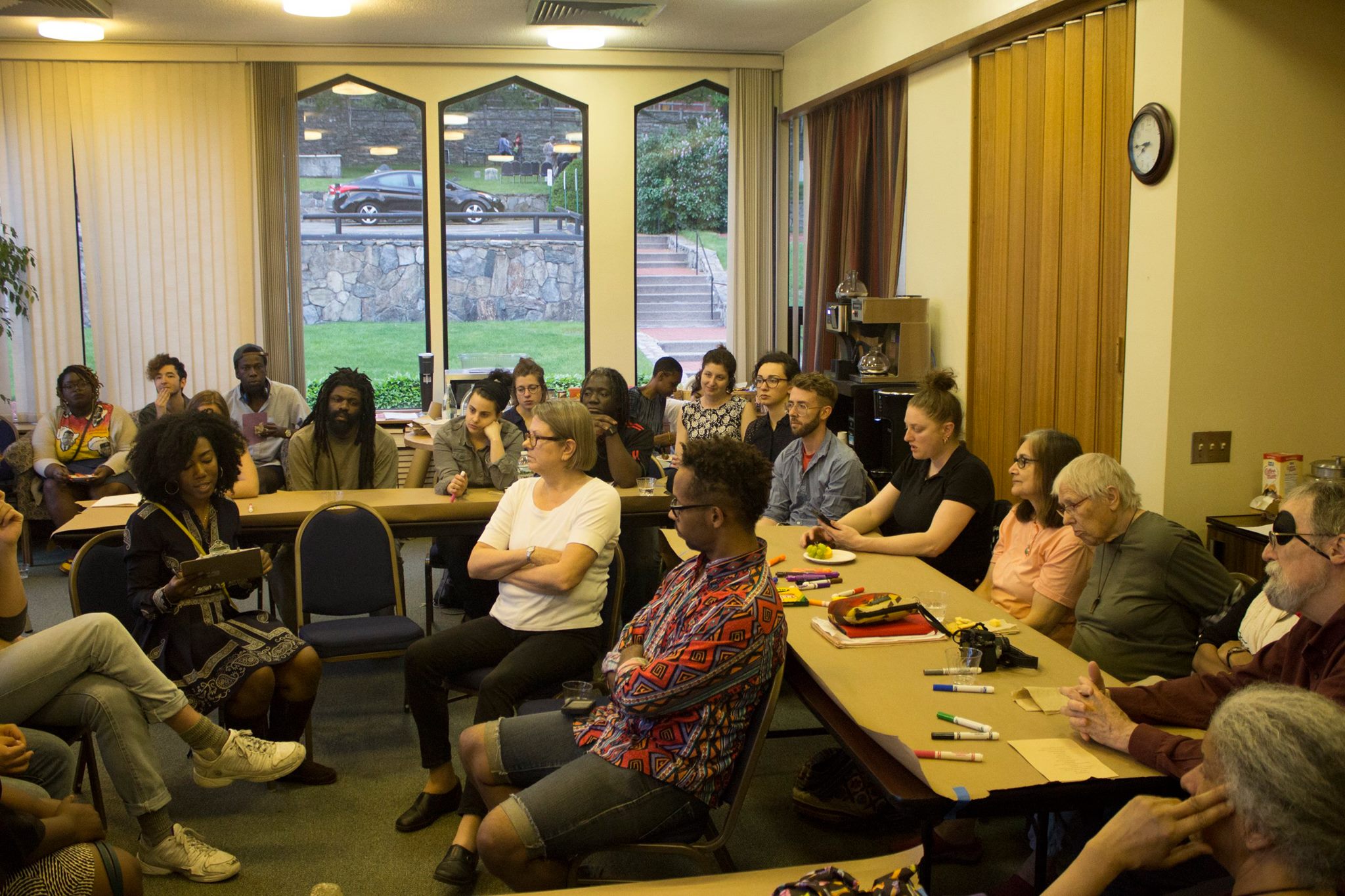
OUR HISTORY
Our story begins with our denomination, which adopted a series of resolutions that acknowledged the Episcopal Church’s history of participation in and support of the slave trade and the deep and lasting injury which the institution of slavery and its aftermath have inflicted on the Church and on society, especially people of African descent. When our new bishop arrived in the fall 2012 it was shortly after the diocese had closed the historic St. John’s Cathedral in Providence. We had a building in need of a purpose, so we hosted a series of conversations around the state to ask: What shall we do with the Cathedral? One of the ideas proposed was to create a place and programs that would enable our church and the citizens of Rhode Island to look at our unique place in the history of slavery and the slave trade. That idea was overwhelmingly affirmed by our diocesan convention in November 2014, and The Center for Reconciliation was launched.
While we usually think of slavery as a Southern institution, Rhode Island was, of all the Northern states, the most deeply involved both in the slave trade and in supporting the institution of slavery. About 60% of all slaves brought to the Americas were transported on ships that were launched from Providence, Bristol and Newport, three seaport cities in Rhode Island. Most of our state’s economy was built on revenues generated by slavery and the slave trade, and later by profiting from Southern slavery in the processing of cotton textiles and the production of “Negro cloth” for sale to Southern slave owners. Yet many Rhode Islanders remain unaware of our colonial history of slavery and slave trading and our dependence on Southern slavery from the Revolution to the Civil War. And there are few places in the state where people can encounter and explore this history.
“THE CFR BEGAN AS A GRASSROOTS EFFORT LARGELY LED BY VOLUNTEERS.”
While other faith communities were, of course, involved in the slave trade and its auxiliary businesses, many, if not most, of the leading businessmen engaged in the slave businesses were Anglicans (now known as Episcopalians). The shipping industry, rum distilleries, dairy farms, banks, insurance companies, textile mills and more were owned by Anglicans and their wealth built our churches, schools and communities. While some spoke out against slavery, many others, including our clergy, owned slaves and benefited from the business of slavery.
The CFR began as a grassroots effort largely led by volunteers. Most of the founders are members of the Episcopal Church and it is our faith that motivates us to do the work of racial reconciliation. We understand reconciliation as the core mission of the church and our call, as members, is to be actively engaged in the spiritual practice of reconciliation.
To our amazement, the idea was picked up by news media across the country and around the world and soon we were fielding requests from reporters for the NY Times, television stations and even German newspapers. The concept of a slave museum in a church obviously was “newsworthy.” Unfortunately, it was also a misnomer, because we never envisioned having a traditional museum, since we have no artifacts and we aren’t likely to have the climate-controlled environment, guards or guides to enable us to offer a full museum experience. Plus, the idea of a slave museum misses the most important point of the concept of a Center for Reconciliation – namely that we envisioned the Cathedral as a place where people could talk about slavery, the slave trade and its legacies. Open and honest dialogue about difficult topics like race is what we saw as being at the heart of reconciliation.
Incorporated as a non-profit, separate from the Diocese, Elon Cook came on board as Director. Under her guidance we began to put together study guides and walking tours. We reached out to others working in this area and partnered with them on displays and exhibits.
We are now entering a new chapter. The Center for Reconciliation has come back home to the Episcopal Diocese, re-integrated as a ministry. We have a new Associate Director in charge of Programming and Education, and we are searching for a new Executive Director. Walking Tours are being planned, with new stops and stories. We have begun putting together a program of anti-racism training, specific to RI, and will have facilitators ready to work with interested groups. We have learned from the period of pandemic that there are ways that we can gather without being limited by location, and we are planning a schedule of webinars and virtual study groups.The work of racial reconciliation is urgent. The work is overdue. Please join us.
